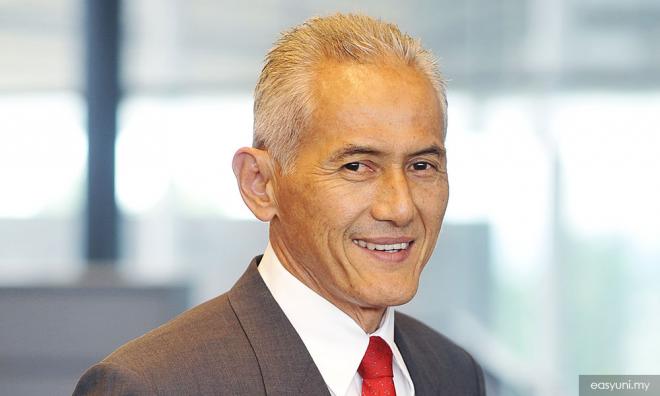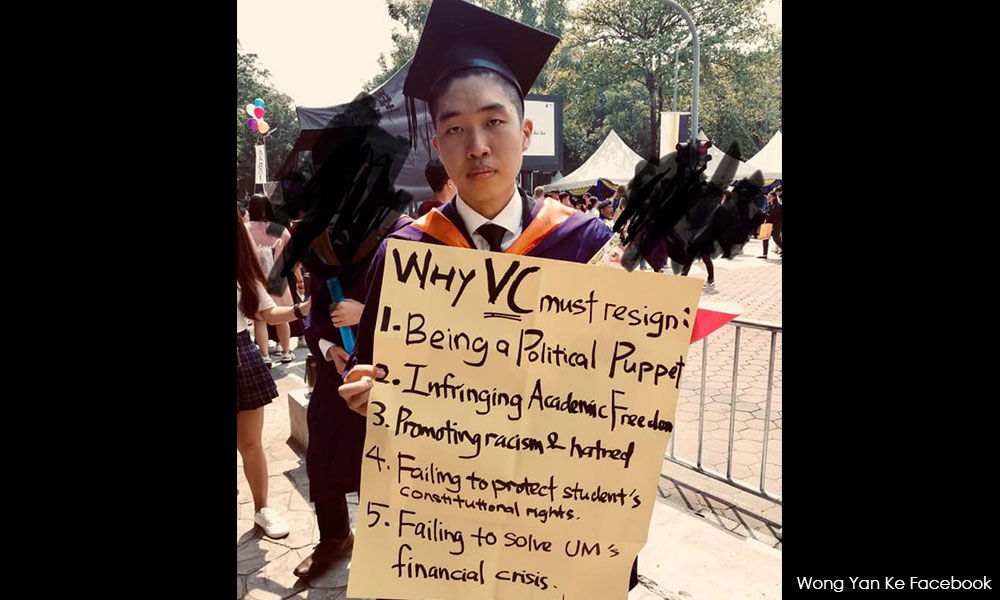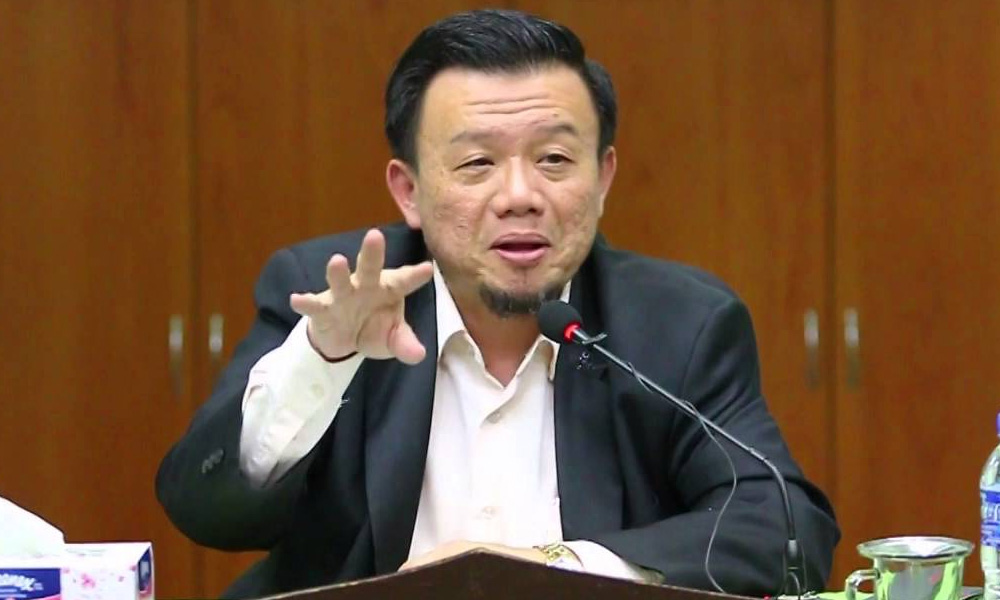
University of Malaya (UM) was the premier institution in the late 70s. Students felt relatively free to indulge in critical politics. I was then enrolled in education but dropped out mid-session for full-time journalism work. The Universities and University Colleges Act was still in its infancy.
The academic environment was kept relatively open by the Vice-Chancellor, Ungku Abdul Aziz, known for his emphasis on “fluency in Malay, competency in English and integrative bilingualism” to forge a closer bond among Malaysians.
Ungku Aziz retired in 1988. He was succeeded by Syed Hussein Alatas, one of the founding members of Gerakan in 1968, a staunch critic of imperialism, a “multiracialist” whose contrarian views on bumiputera privileges earned him no love from the establishment.
The current vice-chancellor of UM, Abdul Rahim Hashim (above), however, brings to the coveted position a cultural baggage laden with a mythical sense of what it means to be a dignified Malay.
Here’s where I tip my mortarboard to engineering graduate, Wong Yan Ke (below) for his on-stage protest against the vice chancellor’s racist speech at a Malay Dignity Congress weeks earlier.

Wong’s protest expectedly attracted sycophantic support for the vice-chancellor from the Malay student body, and president of the National Professors Council who urged the UM administration to revoke Wong’s degree.
Human rights organisation, Suaram, in supporting Wong’s right to respond to the hate speech, however, called for the vice chancellor’s resignation following UM’s report to the police, seemingly a disproportionate reaction to what is becoming a popular platform for activists to draw attention to public interest issues.
From the #MeToo movement’s protest against workplace sexual harassment of women during the Golden Globe awards ceremony, to graduates walking out for particular millennial causes, for instance #DisarmUnis, or by simply standing and turning their backs when controversial guest speakers deliver their commencement address, Wong’s on-stage protest points to an ailment plaguing the universities involved in the ethnocentric congress.
Yes, Wong’s protest was disrespectful of the occasion. But that is not the issue. After all, convocations do give exasperated graduates a rare platform to be heard on public issues that those in power are inclined to gloss over.
The critical issue is the insular academic leadership of the vice-chancellors in the four public universities where freedom of critical expression ought to be highly valued and closely protected.
The vice-chancellors’ racial declarations carry grave ramifications on the respective university’s academic integrity and consequent racial polarisation among faculty members and students.

The stupidity of the vice-chancellors’ overtly racist agenda merely exposes the intellectual atrophy and uncertain calibre of academic leadership in the four taxpayer-funded universities.
Vice-chancellors ought to be appointed for their proven industry experience and academic vision, international connections, and significant research contribution to their field of study, regardless of ethno-religious background, political conviction or religious belief.
A quick Google Scholar search of the four vice chancellors comes up with scanty information of who they are, their academic profile, industry experience and research-teaching track record.
Appointments of vice-chancellors in our public universities seem more racialised than qualified on academic merit and international reputation. This modus operandi has channelled our public universities over the decades downwards a stream of mediocrity.
Chancellors and Vice-Chancellors appointed to the 20 public universities to date are, unsurprisingly, all bumiputeras except for Taufiq Yap Yun Hin (below), a Chinese-Muslim appointed to Universiti Malaysia Sabah, which has attracted mixed reactions.
I do not believe that the racially skewed appointment of vice-chancellors is for a lack of internationally renowned Malaysian academics who could be the true torchbearers of a university’s conscience.
The fact that University of Malaya, Universiti Pendidikan Sultan Idris (UPSI), Universiti Teknologi Mara (UiTM) and Universiti Putra Malaysia (UPM) had organised an exclusively ‘Malay dignity’ gabfest – instead of, for instance, a progressive ‘What Malaysia Can Be’ convention, or ‘Malaysian Unity Congress’ - goes to show the deplorable state of our academic institutions, as articulated by Mohd Tajuddin Rasdi, professor of architecture at UCSI.
A university is only as good as its vice-chancellor, faculty staff, students and administrators who make up the institution. The learning environment, academic freedom, university governance, ethos and autonomy - all these shape its constituents’ values, mindsets and character.
The government aims to have at least three Malaysian universities listed among the top 50 in the world by 2020. According to the QS World University Ranking, UM is currently ranked 80, UPM (202), UiTM (751-800). UPSI is unranked.
Have our public universities instilled in their academic staff and students a productive sense of multiracial engagement, and nurtured in its graduates the critical mindsets that they can carry with pride onto the international stage, and perhaps raise our university rankings? Clearly, they have not.
Are our vice-chancellors, university bureaucrats, student unions and faculty factions so patronised by political affiliations, shaped by Malay identity, and overly complacent due to a lack of critical peer scrutiny that they feel no compunction to prove their academic standing? Apparently, they are.
ERIC LOO is a Senior Fellow (Journalism) at the School of the Arts, English & Media, Faculty of Law, Humanities & Arts, University of Wollongong. He is also the founding editor of Asia Pacific Media Educator. - Mkini




No comments:
Post a Comment
Note: Only a member of this blog may post a comment.